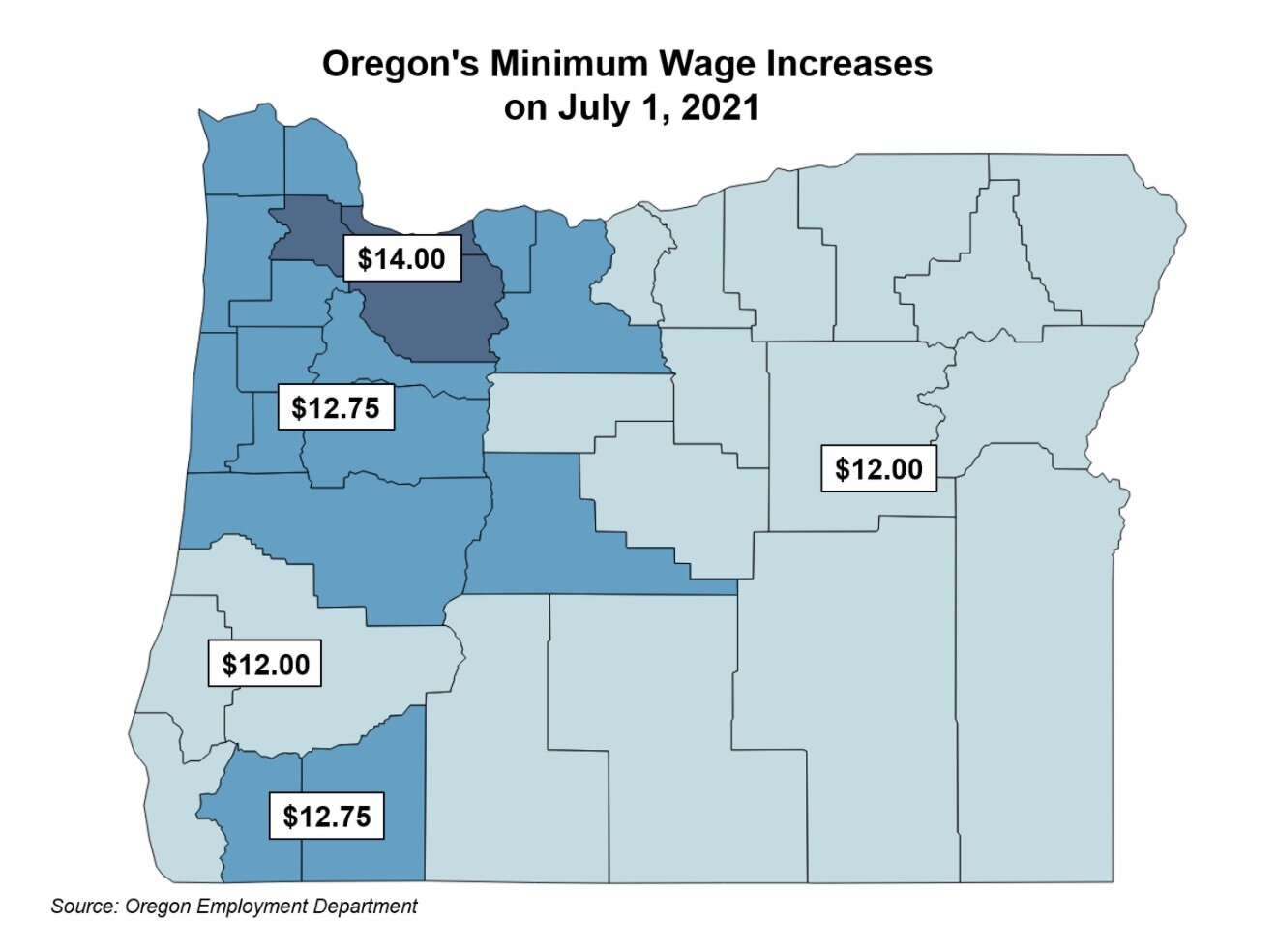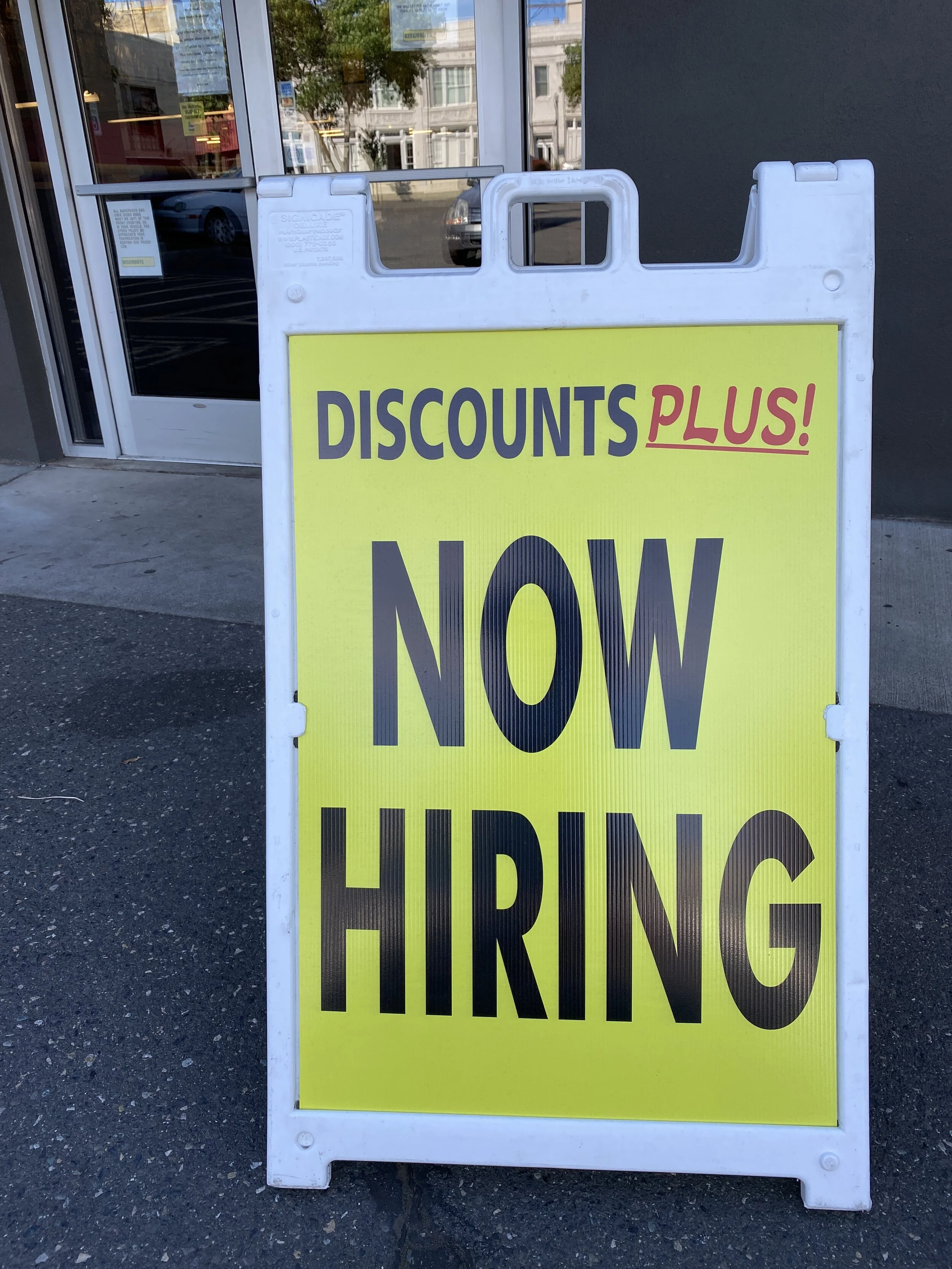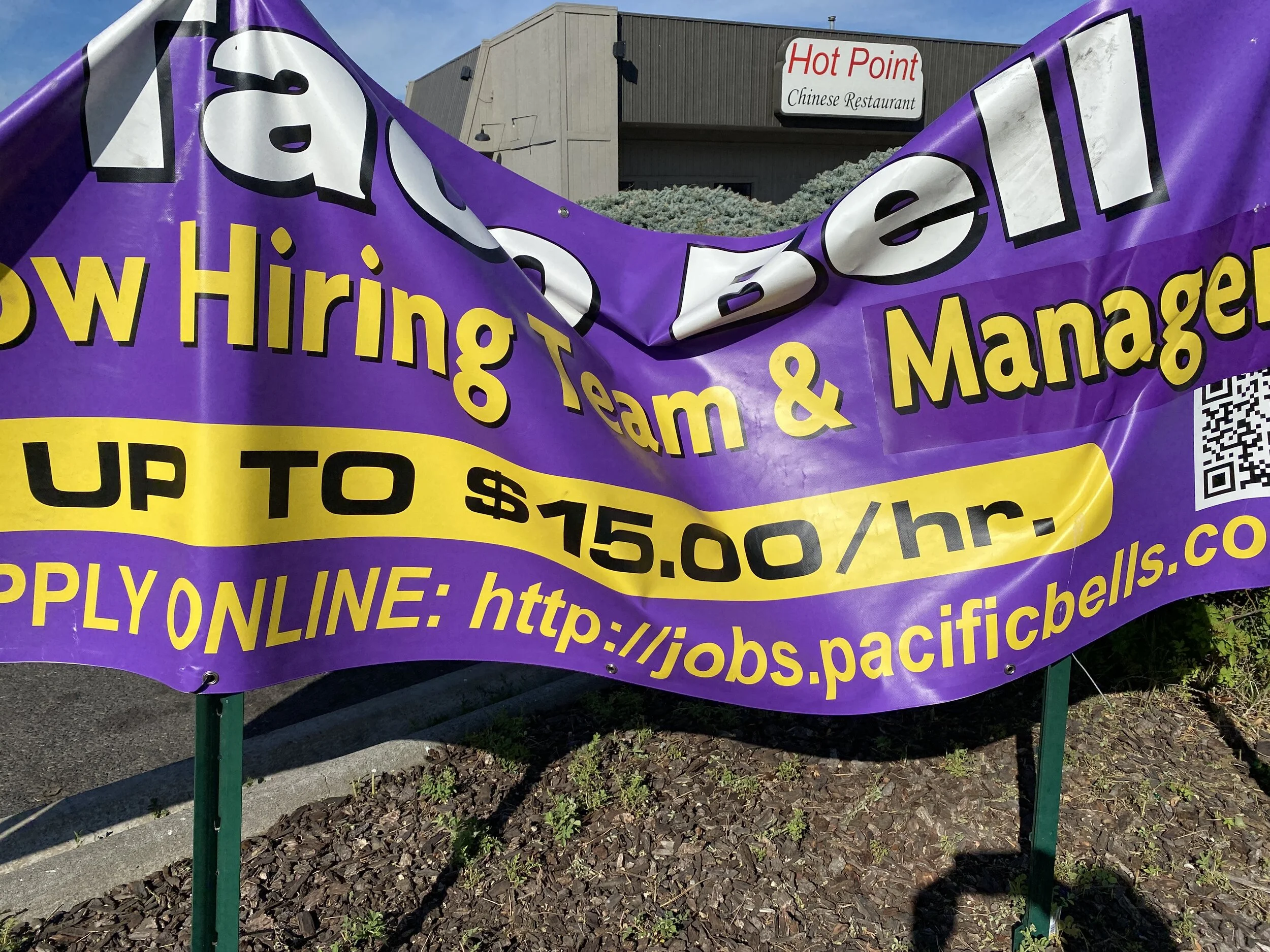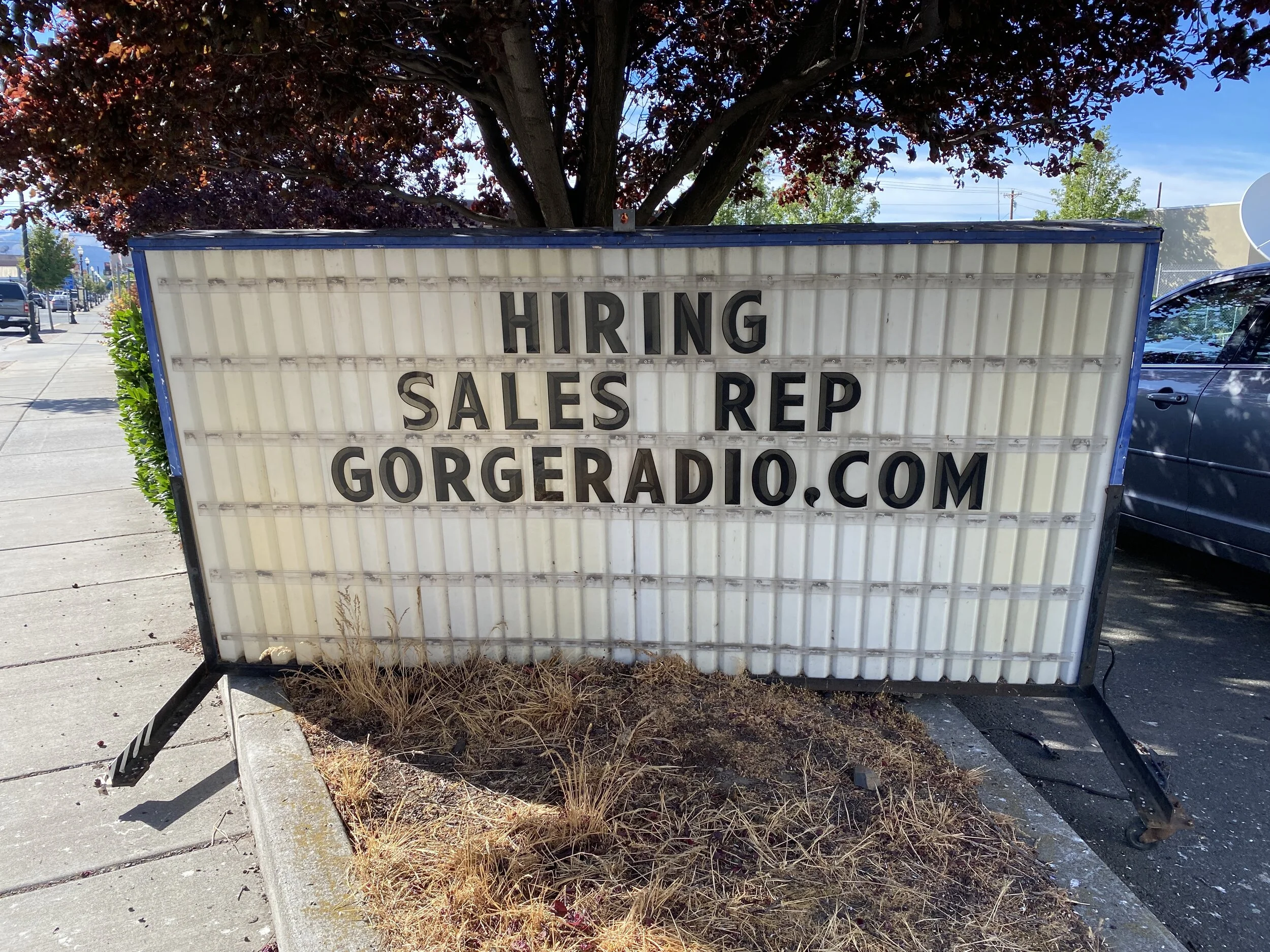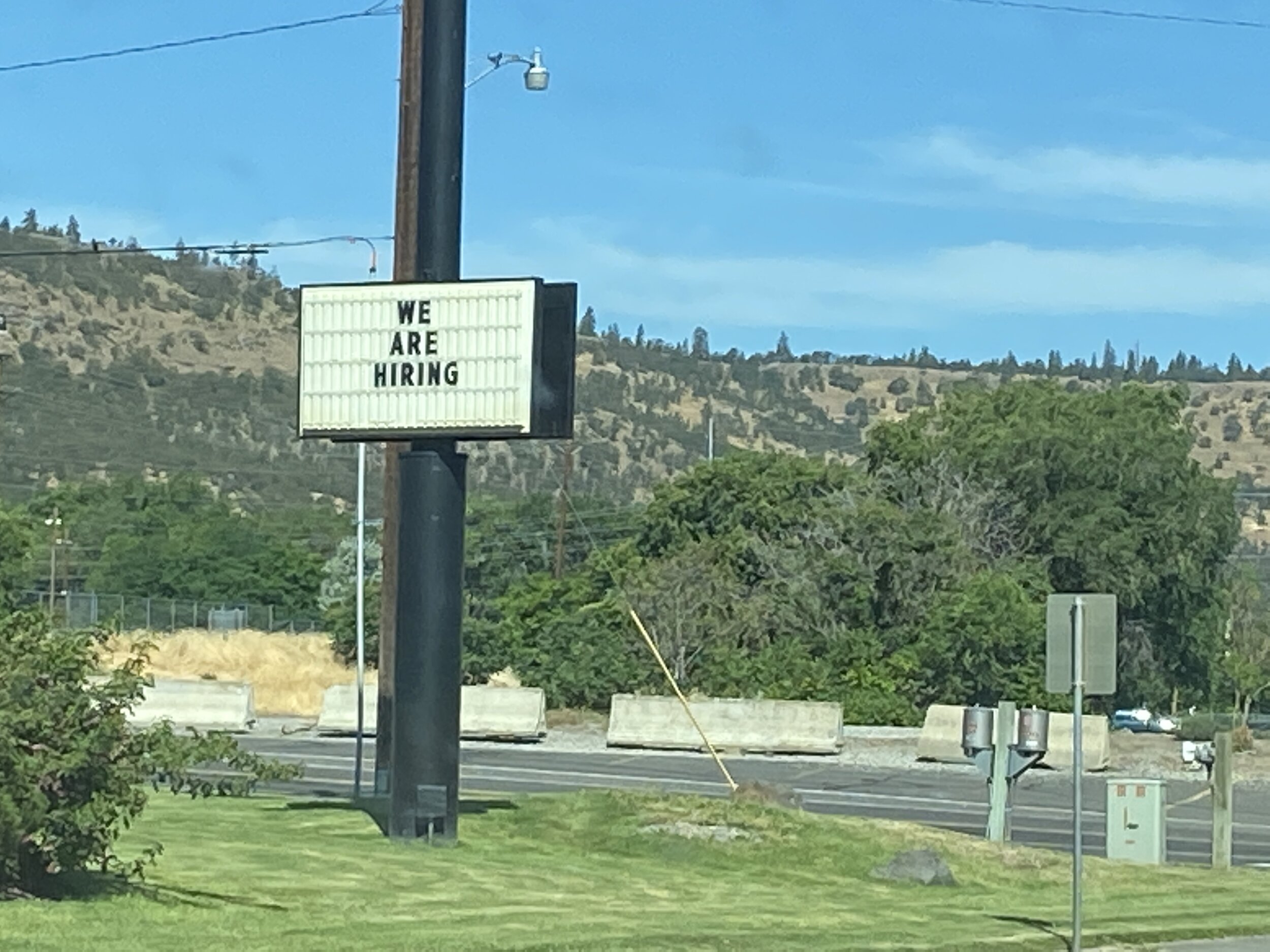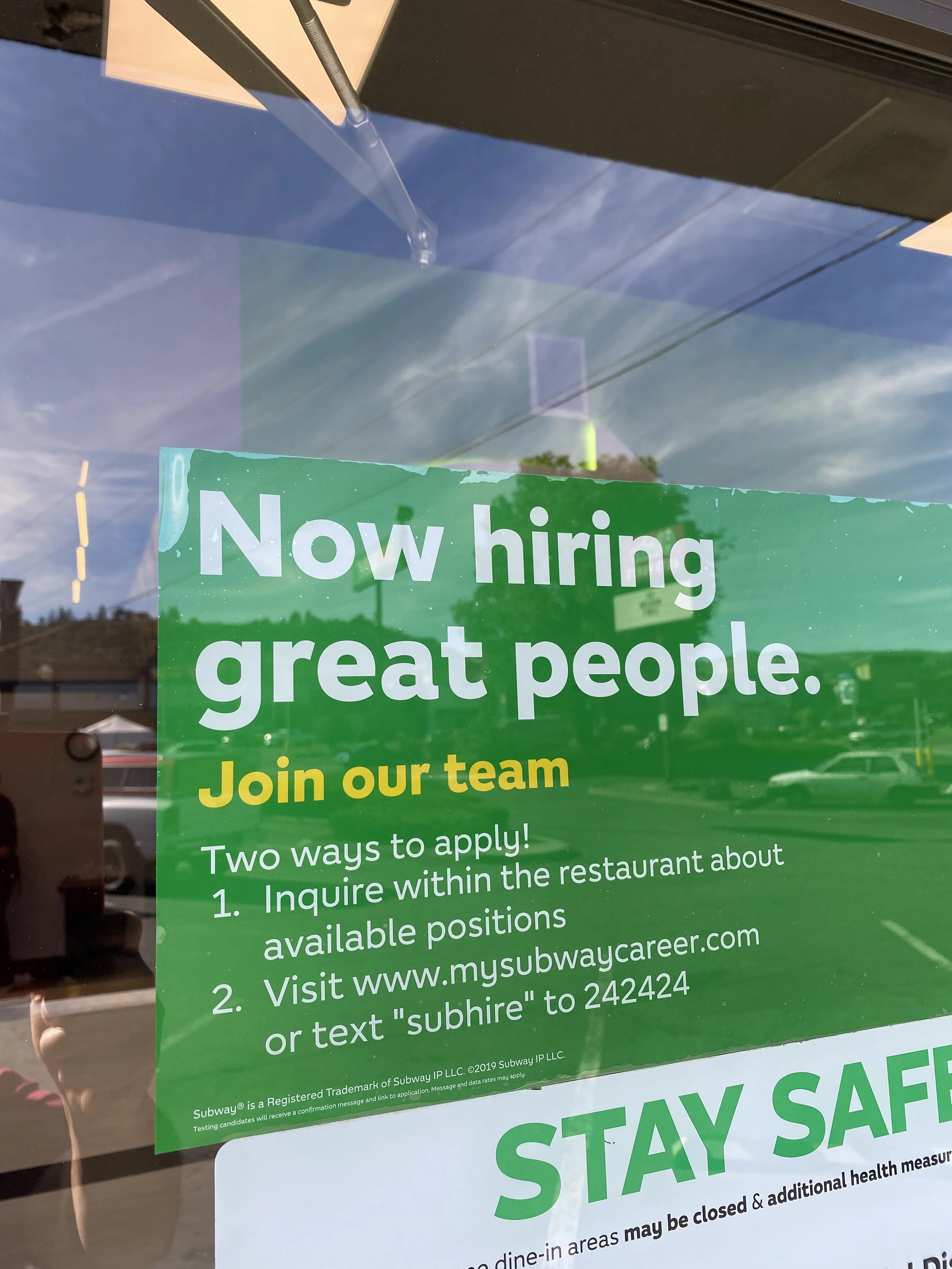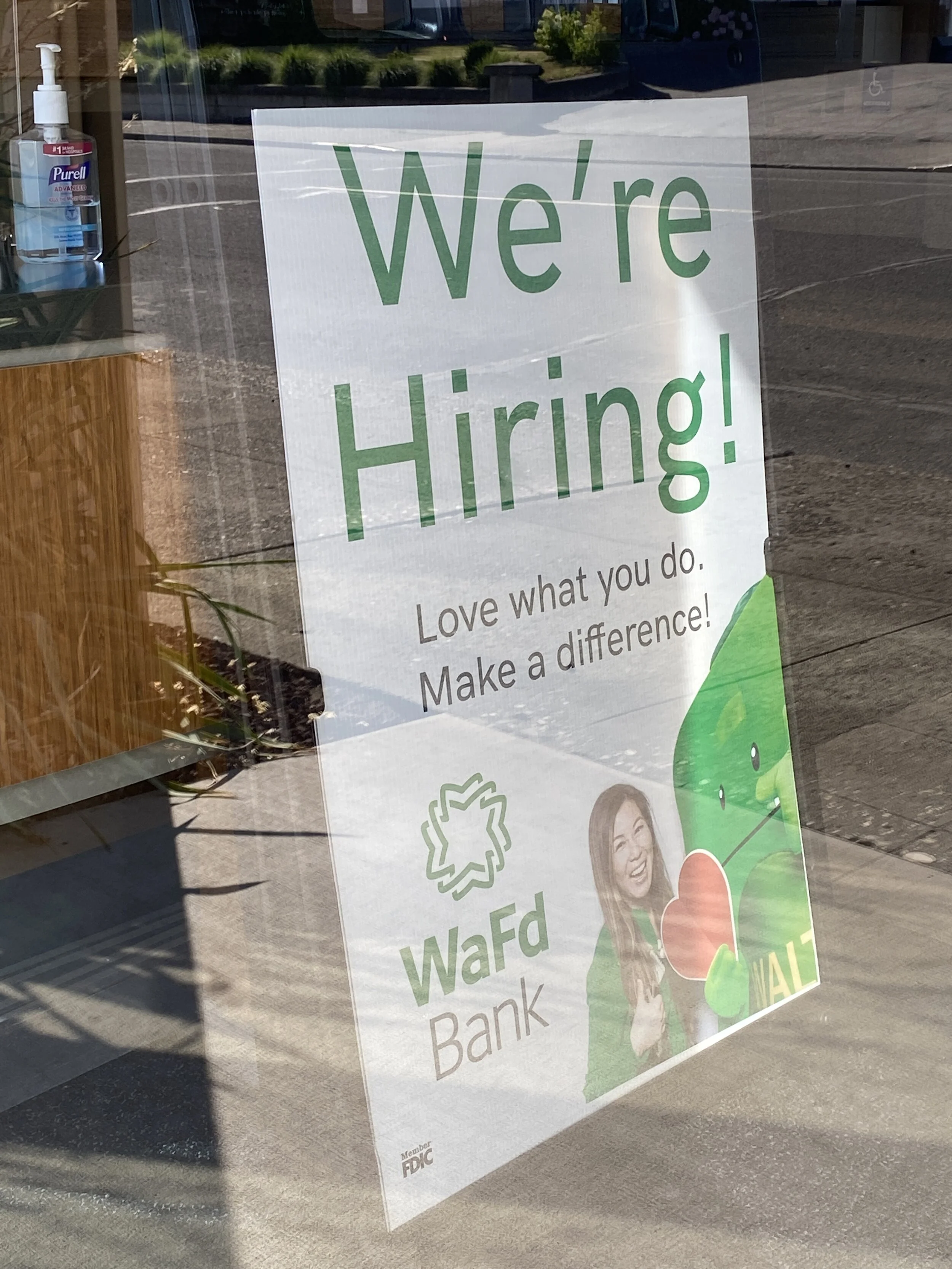Minimum Wage Increases July 1st
Map showing Oregon’s regionally specific minimum wage increases. Source.
To the celebration of some and chagrin of others, Oregon minimum wage will increase on July 1st, 2021. Wage earners are looking at 50 cents to 75 cents more an hour depending on where they live.
Some are looking forward to an increase, others worry about the impact this will have on already struggling small businesses, and economists continue to warn about the impact of a federal minimum wage that has not kept pace with inflation and productivity.
Some locals make the point that the wage hike comes at a time when businesses are already struggling after a year of pandemic that jolted the job market, particularly in service industries.
Since 2016, Oregon law has declared that the minimum wage must increase slightly every year to adjust for inflation and rates of increase depend on whether a county falls into the Portland metro area, “standard” counties, or non-urban counties.
“The tight labor market for leisure and hospitality workers is driving wages upward. Just 20% or one-in-five Oregon leisure and hospitality jobs paid minimum wage in 2020 (3rd quarter); and overall 6% of all Oregon jobs paid minimum wage in 2020,” said Dallas Fridley, Regional Economist with the Oregon Employment Department.
The minimum wage will increase from $12.00 to $12.75 an hour in Wasco, Hood River, Benton, Clatsop, Columbia, Deschutes, Jackson, Josephine, Lane, Lincoln, Linn, Marion, Polk, Tillamook, Yamhill, Counties. The same increase will also take place in the parts of Clackamas, Multnomah and Washington counties that lie outside the urban growth boundary.
The largest increase - from $13.25 to $14 an hour - will occur in the Portland Metro area inside the urban growth boundary.
Non-urban counties will see the smallest increase.
The minimum wage in non-urban counties will increase from $11.50 to $12.00 an hour.
Non-urban counties include Baker, Coos, Crook, Curry, Douglas, Gilliam, Grant, Harney, Jefferson, Klamath, Lake, Malheur, Morrow, Sherman, Umatilla, Union, Wallowa, and Wheeler counties
While many are grateful for the increase, overall Oregon's minimum wage for Standard and Non-urban counties still lags behind Washington’s statewide $13.69 an hour.
Likewise, Portland’s hourly minimum wage of $14 an hour is still much lower than Seattle’s hourly minimum wage of $16.69.
How Minimum Wage Increase Impacts the Regional Economy
How the minimum wage impacts your community has a lot to do with the number of minimum wage jobs in your region and the type of industry that is predominant in your region.
“The minimum wage matters more for some industries than others. And by location it may be a bigger deal for some counties than others based on the kinds of industries you find,” said Fridley.
For example in Sherman County minimum wage jobs account for only 2.8 percent of jobs so the impact there will be smaller than the impact on areas like Wheeler County where minimum wage jobs account for 16.9 percent of the total jobs.
“More than half of Wasco County’s minimum wage jobs are in three industries: leisure and hospitality; private education services (think child care) and other services (nonprofits),” said Fridley. “In Hood River the top 3 are closer to 75% of all minimum wage jobs: leisure and hospitality; retail trade; and natural resources and mining (agriculture).”
In 2020 approximately 5.5 percent of all Wasco County jobs paid $12/hour or less.
Breaking that down by industry, Fridley reported that in Wasco County 18.8 percent of its leisure and hospitality jobs paid $12/hour or less. It could be theorized that therefore the leisure and hospitality industry would be the most impacted by a minimum wage increase in Wasco County.
Fridley reported that in Hood River County just 4.3 percent of all jobs paid $12/hour or less.
And only 9.5 percent, or about one in ten leisure and hospitality jobs paid $12/hour or less in 2020.
As a result Hood River County’s leisure and hospitality industry will be less affected by the minimum wage increase.
A graph explaining the total number of minimum wage jobs in Oregon broken down by county. Source.
The Dalles Chamber of Commerce, CEO/President Lisa Farquharson said that the minimum wage increase will impact local employers' payroll during an already difficult time for local businesses.
“As of July 1, the Minimum Wage will be increasing to 12.75 an hour. While the increase may not seem like a large amount per hour this will impact employers at many different levels,” said Farquharson “This change will increase the overall payroll by 6 percent for each employee at the entry level.”
“The other increase that most do not think about is the cost to retain existing employees when the minimum wage increases. An employer will most likely increase the wages of their higher paid employees to help keep those employees on board with them. Think about a 6% increase across the board to the employer in an already tough economy,” said Farquharson.
“This is going to hit them hard, so we just ask that you support local more than ever to help them cover their overhead, increased cost of food, increased cost of fuel for transporting, and now the increased cost of labor,” said Farquharson.
Shopping local is one of the foundational keys to creating a strong local economy.
Nearly 48 percent of money spent at local independent businesses stays in the local economy. Meanwhile only 14 percent of money spent at chain retailers stays local. Local businesses pay into local taxes, support local schools, sports, community initiatives, buy local services, participate in local beautification and more.
Ray Bustos, Owner and CEO of Lockstock BBQ in The Dalles said that “I think everyone should be paid a living wage. I don’t have many employees so it’s not going to affect me it will actually probably be a benefit for my business. People will have some more disposable income and can afford to go out to eat. But again, I don’t have many employees so this is more of a personal perspective than a business one.”
Is the Debate Around Minimum Wage Becoming A Moot Point?
Many businesses already pay a much higher than federal or state minimum wage to their base rate employees. And many businesses said that they have raised their wages to attract and retain employees during Oregon’s current labor shortage.
McDonald’s and Taco Bell in the Dalles, OR both already pay $14 and up to $15 an hour respectively to their employees. And in 2020 only 4.3 percent of all Hood River jobs paid $12/hour or less.
Some say that all this worry about the increase in the minimum wage is becoming a moot point as businesses move ahead with paying higher wages, while the state and federal governments lag behind.
Minimum Wage Highly Debated
The impacts of raising the minimum wage remains a highly debated topic amongst economists. Some studies show that increasing the minimum wage actually decreases unemployment. While others argue that the opposite is true.
However according to the majority of economists, most concerns about job losses resulting from a minimum wage increase are largely blown out of proportion.
In a recent presentation, Arindrajit Dube, an economist and professor at the University of Massachusetts reported that the majority of economists believe that raising the minimum wage would not negatively affect employment rates.
A recent survey showed that only 26% of economists believe that raising the minimum wage would have a negative impact on federal employment levels.
A slide from presentation explaining the economist of the American Economic Associatation (AEA) and The Iniative on Global Markets (IGM) changing views on increasing the federal minimum wage. Source.
Recent studies that reviewed 138 state-level minimum wage increases between 1979 and 2016 have found that wage increases up to 59 percent of average wages had no effect on employment levels. Another study by UC Berkeley found that increases up to 80 percent also had little impact on job losses/employment levels of low-wage workers.
Not everyone agrees.
The Congressional Budget Office’s (CBO) nonpartisan analysis of eleven studies on raising the minimum wage predicts nearly 1.4 million jobs would be lost.
Dube said that this was a result of them including incomplete studies whose job-loss estimates acted as huge outliers in the analysis.
“They’re tasked to figure out what would happen if the minimum wage is raised to $15. CBO estimated that about 27 million workers would get a raise. They estimated that this would raise around a million dollars out of poverty. At the same time, they estimated there would be 1.4 million fewer jobs as a loss,” said Dube.
However Dube says the CBO’s analysis was too pessimistic. And he criticized the weight they placed on outdated and incomplete studies that served as outliers in their analysis. He also pointed out that those same outlier studies were later updated by the author to reflect very different results. In fact the updated study reported only one-tenth of the job losses that it had originally estimated. However the updated (completed) study was not included in the CBO’s analysis.
“Overall if you use a similar methodology as the CBO but look at a more updated and a broader set of estimates like I did for my report to the UK treasury, I think you would find there's something like several hundred thousand fewer jobs as opposed to 1.4 million fewer jobs,” said Dube.
Indeed.com has said that benefits of raising the minimum wage include boosting the economy, more jobs, higher job satisfaction, higher job performance, and increased employee motivation, retention and loyalty.
Cons include an increased cost of labor, higher cost for product, a stalled job market, and more outsourcing. Indeed suggested ways businesses could address a raising minimum wage are to watch the clock, to minimize overtime, price products and budget strategically to prevent job and profit loss.
New Bills Introduced on the State and Federal Level May Raise the Minimum Wage
Democratic lawmakers have introduced a new bill (HB 3351) which would raise the statewide minimum wage to $17 as of July 1st, 2022. The bill would also mandate that the state continue to annually adjust the statewide minimum wage for inflation. The bill is currently awaiting the Oregon House Speaker’s approval.
Even if HB 3351 doesn’t pass, Oregon’s minimum wage may increase if the S.53 - Raise the Wage Act of 2021 introduced by Senator Bernie Sanders, passes into law.
The Raise the Wage Act would initially increase the federal minimum wage from $7.25 to $9.50 an hour with annual increases for the next five years. The bill would increase the federal minimum wage to $15 an hour for 32.2 million workers by the year 2025, including 19 million essential and front-line workers and half a million child care workers.
If the Raise the Wage Act passes it would be the first time the federal minimum wage has changed in over a decade.
State and Federal minimum wage hasn’t kept pace with inflation for nearly five decades.
So how bad is it? Are we off by a dollar or two or is it more?
“If the minimum wage did rise in step with productivity growth since 1968 it would be over $24 an hour today,” said Dean Baker, a senior economist at the Center for Economic and Policy Research and the author of several books on economy. Baker said the US minimum wage hasn’t kept pace with inflation since 1968.
“Until 1968, the minimum wage not only kept pace with inflation, it rose in step with productivity growth. The logic is straightforward; we expect that wages in general will rise in step with productivity growth. For workers at the bottom to share in the overall improvement in society’s living standards, the minimum wage should also rise with productivity,” said Baker.
“The distinction between inflation and productivity is an important one,” said Baker “If the minimum wage rises in step with inflation, we are effectively ensuring that it will allow minimum wage earners to buy the same amount of goods and services through time, protecting them against higher prices. However, if it rises with productivity that means, that as workers are able to produce more goods and services per hour, on average, minimum wage earners will be able to buy more goods and services through time.”
According to the Economic Policy Institute, in 1968 a federal minimum wage worker had 46% more earnings and buying power than 2021 federal minimum wage workers. The Economic Policy Institute said that an increase in the national minimum wage was “well overdue” and that despite many’s fears, the economy can afford a much higher national minimum wage. They also stated in a recent report that minimum wage increases do not lead to significant job losses.
However the Economic Policy Institute also criticized the proposed $15 hourly minimum wage would still be “inadequate to achieve basic economic security” for individuals with children and that adults without children “in virtually all urban and rural areas of the country” who work full time still need to earn more than $15 an hour to pay for housing and basic living expenses.
Graph from the Economic Policy Institute explaining how minimum wage has not kept up with inflation or productivity. Source.
Increasing the federal minimum wage would support gender and racial equality.
Increasing the minimum wage would help decrease the pay gap between men and women as well as between college graduates and those without college degrees.
Women still make about 17.7% less than what men make in comparable jobs.
“Almost two-thirds of minimum wage workers are women. Minimum wage workers tend to be young and most do not have a college degree,” said Fridley.
The Economic Policy Institute said in a report that an increase in the national minimum wage would also be a move towards a more racially just economy.
“Due to occupational segregation, discrimination and other impacts of systemic racism, racial pay disparities are one of the persistant, structural features of the U.S. labor market,” read the report by David Cooper, Zane Mokhiber and Ben Zipperer.
The report said that raising the federal minimum wage to $15 an hour would help alleviate nationwide pay inequality which disproportionately affects Black and Hispanic workers.
Studies show that Black workers are paid 14.9 percent less than comparable white workers. And Hispanic workers are paid 10.8 percent less than comparable white workers.
To give your state senators feedback on HB 3351 or the Raise the Wage Act click here.
To give your state representatives feedback on HB 3351 or the Raise the Wage Act click here.

